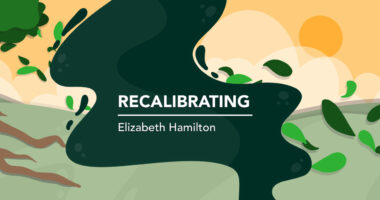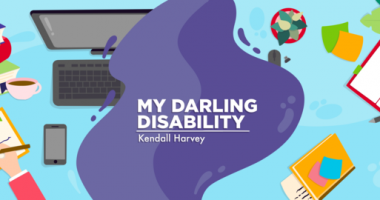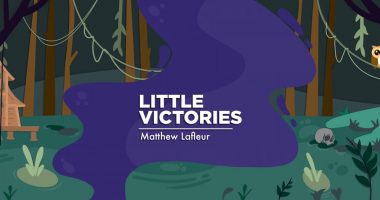The Tale of the ‘Death March’ and the Secret We Kept

I couldn’t take another step. My forehead was covered in sweat underneath my dark brown bangs. I was miserable from the top of my head down to my aching legs.
At 13, I hadn’t yet been considerably affected by Friedreich’s ataxia. I would have five more years of being ambulatory, but I didn’t know that at the time. Nor had I even heard of Friedreich’s ataxia. All I knew was that physical activities were a lot more difficult for me than for others my age. Something was broken in me but I didn’t know what.
Despite this, I still believed my independence was the most valuable gift I had. That idea would eventually change over time.
The sun was setting, and I didn’t think I could make it the 2 miles back to camp. I remembered why I was there in the first place. The hike was only one among many activities that had made for a fun and exciting week. Maybe focusing on the other details of the trip would help to speed along this painfully long hike, I thought.
It was the late 1990s, and my Boy Scout troop had traveled to the outskirts of Austin, Texas, for summer camp. We arrived at El Rancho Cima, a campground then owned by the Boy Scouts of America. Years later, a flood would devastate the campsite, forcing the Boy Scouts to sell it.
The dry desert winds at the camp were foreign to me, as I normally bathed in the Louisiana humidity back home. Sunsets at the campground were unforgettable, and the sky was dotted with large bats that looked like moths flying from a distance.
El Rancho Cima had plenty of activities to make me cherish the trip. Swimming and archery were both fun. Knot-tying? Not so much, but I did get a merit badge. My troop also went horseback riding. My horse was named Wildfire.
On the final night, my troop decided to go for a 15-mile hike that was pretty famous at the camp. They called it the “Death March.”
For most of the trek — about 13 miles — I was able to manage by hiking slowly. But after that, about 2 miles from my tent, my legs seemed to shut down.
The adult troop leaders noticed I was struggling. Of course they did. They probably had been more aware of my disorder at that point than I was. I remember that one of them, Mr. Mark, stayed at the back of the line with me as I tried to keep going.
A boy my age named Louis also walked with us while the others crept farther and farther ahead. Meanwhile, my pace worsened.
Then, I stopped to rest and couldn’t get up. At that point, Mr. Mark asked us if it would be easier for Louis to carry me on his back for the remainder of the hike. (Years later, my cousin would do the same thing.)
I found this to be incredibly embarrassing. Although I realized it would be a lot easier to get a ride, I felt as if I were giving up a piece of my independence. I desperately wanted to be strong enough to do it on my own.
I took a hard, deep breath. I was exhausted.
“OK,” I said, resigned. “If it’s OK with Louis, I’ll ride on his back.”
“But you can’t tell anyone I needed help,” I pleaded.
“It’s only between us three,” Mr. Mark promised.
By then, any trace of the sun had disappeared long ago. With me on Louis’ back, we worked our way through the last couple of miles. As we finally approached the camp, I asked to walk the rest of the way.
To everyone else, it appeared that I had completed the Death March on my own. As far as I know, Louis and Mr. Mark never told anyone. And I never heard about that hike ever again.
Two decades have passed since then. Eventually, I became an Eagle Scout. I graduated with honors three times. My FA has progressed severely, and I now use a wheelchair full-time. I also have less control of my hands, and my speech is affected.
But part of me is still on that Death March, struggling to recognize when I need to ask others for help.
I think we all have moments when we realize that we are exhausted. If we are lucky enough, we’ll have others around that we can rely on to help us get by.
To me, that’s maturity — doing whatever I can to survive and thrive.
***
Note: Friedreich’s Ataxia News is strictly a news and information website about the disease. It does not provide medical advice, diagnosis or treatment. This content is not intended to be a substitute for professional medical advice, diagnosis, or treatment. Always seek the advice of your physician or another qualified health provider with any questions you may have regarding a medical condition. Never disregard professional medical advice or delay in seeking it because of something you have read on this website.The opinions expressed in this column are not those of Friedreich’s Ataxia News or its parent company, BioNews, and are intended to spark discussion about issues pertaining to Friedreich’s ataxia.







Comments